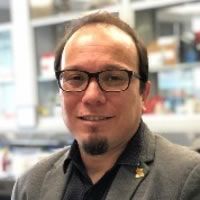¿Bioinformatics requires expertise in computer science, mathematics, and statistics, but also knowledge of molecular mechanisms, chemistry, and physiology of organisms.¿
Over the past 10 years, Víctor Manuel Treviño Alvarado has worked in the software industry, learning and suggesting solutions. However, he was always curious about research. The evolution, adaptability and the intelligence of computational systems fascinated him, so he approached Biology and Medicine: he earned a master¿s degree in Molecular Biology, where he found what he was looking for, and then followed up with a doctorate in Biosciences. Currently, he specializes in the analysis of cancer genomic data.
Although in his time careers had specific and fixed approaches, Treviño Alvarado considers himself an example that the discipline of specialization is malleable and can happen after finishing studies. Though there is greater freedom of movement and exploration of subjects, it remains difficult to create an adaptable curriculum. He dreams with a ¿science-type¿ career, where mathematics/statistics, information technology/systems, biology/medicine, physics/chemistry, humanism/arts/literature and topics (mechanics, geology, astronomy, history¿) could be studied every term.
To make new discoveries, keep himself updated and watch their students grow professionally are his greatest satisfaction. Regarding professional challenges, he believes there are two main ones: the first one, to solve health problems, especially in cancer and genomics areas, through the utilization of computational tools; the second, to transmit the knowledge and experience scientific research has given him to form high-level human resources both in undergraduate and postgraduate study.

 vtrevino@tec.mx
vtrevino@tec.mx